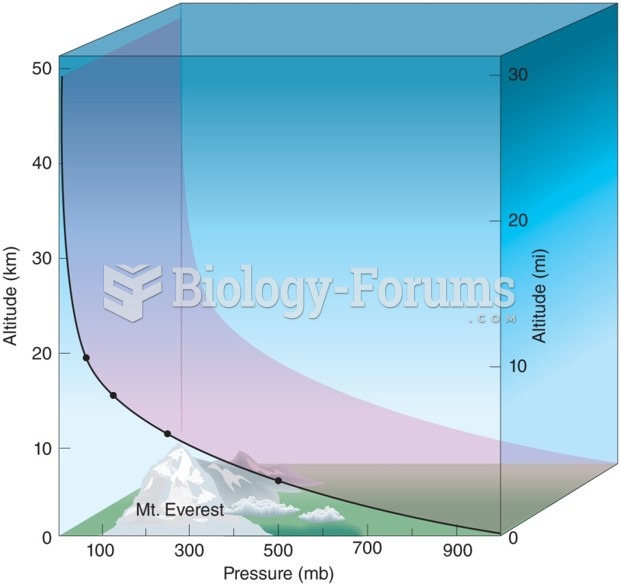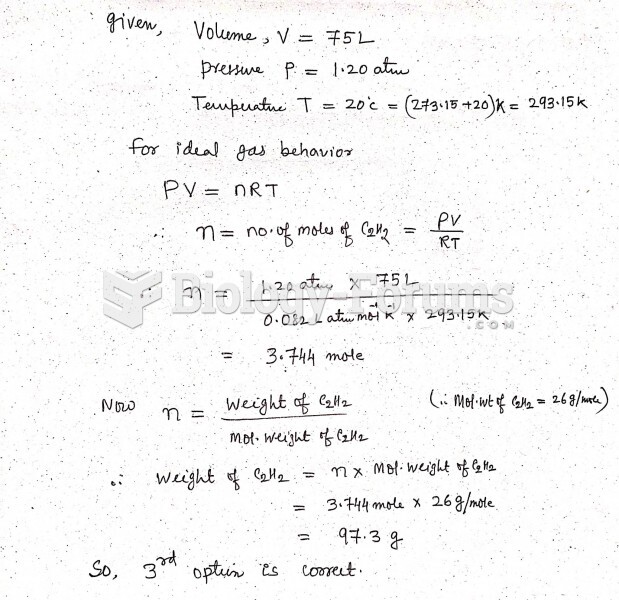|
|
|
The term bacteria was devised in the 19th century by German biologist Ferdinand Cohn. He based it on the Greek word "bakterion" meaning a small rod or staff. Cohn is considered to be the father of modern bacteriology.
Most childhood vaccines are 90–99% effective in preventing disease. Side effects are rarely serious.
The most dangerous mercury compound, dimethyl mercury, is so toxic that even a few microliters spilled on the skin can cause death. Mercury has been shown to accumulate in higher amounts in the following types of fish than other types: swordfish, shark, mackerel, tilefish, crab, and tuna.
For high blood pressure (hypertension), a new class of drug, called a vasopeptidase blocker (inhibitor), has been developed. It decreases blood pressure by simultaneously dilating the peripheral arteries and increasing the body's loss of salt.
Colchicine is a highly poisonous alkaloid originally extracted from a type of saffron plant that is used mainly to treat gout.
 Transurethral resection of the prostate (TURP). As a treatment for BPH, part of the prostate gland i
Transurethral resection of the prostate (TURP). As a treatment for BPH, part of the prostate gland i
 Direct thumb pressure along the tibialis anterior. Start at proximal end, moving about 1 inch at a ...
Direct thumb pressure along the tibialis anterior. Start at proximal end, moving about 1 inch at a ...





